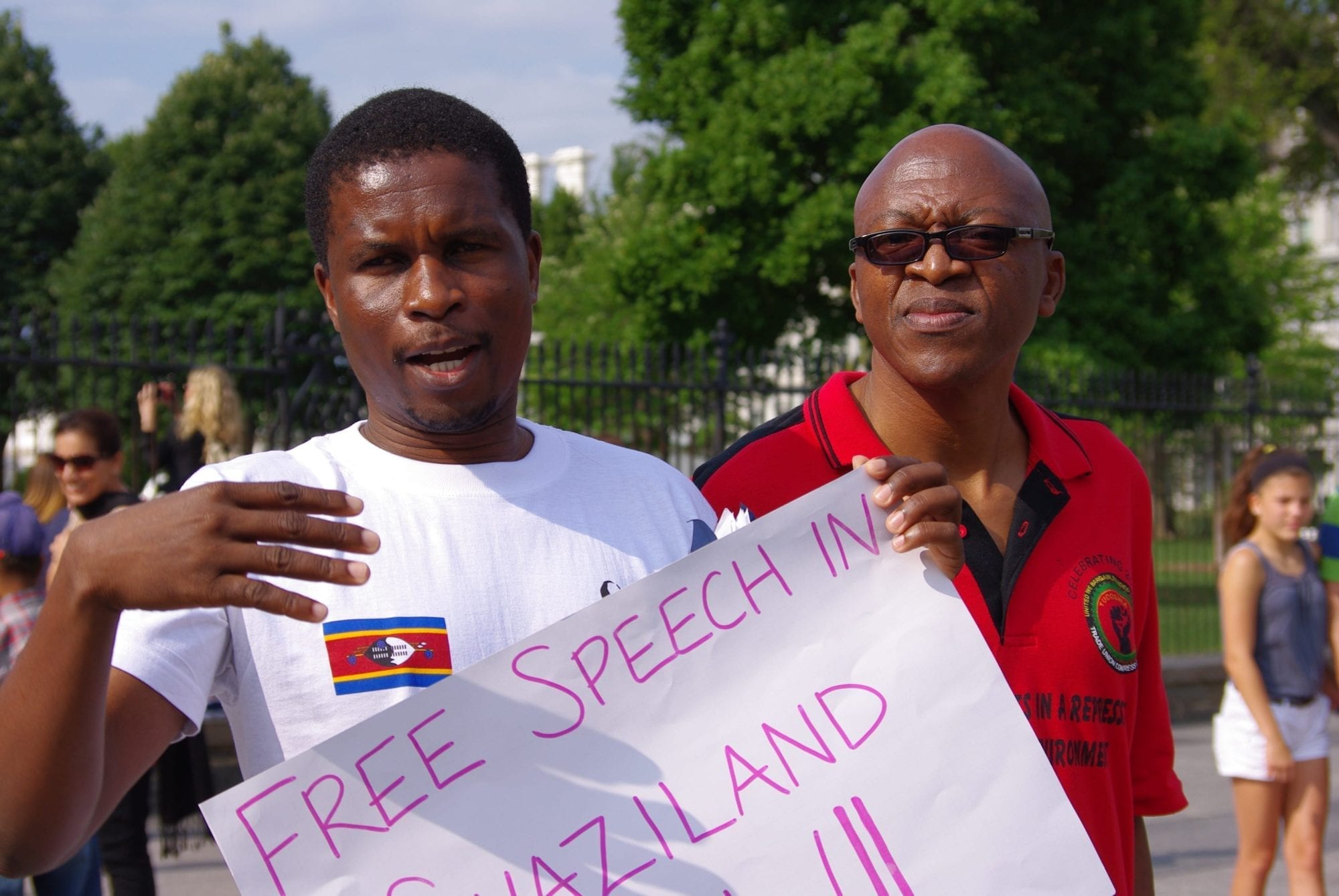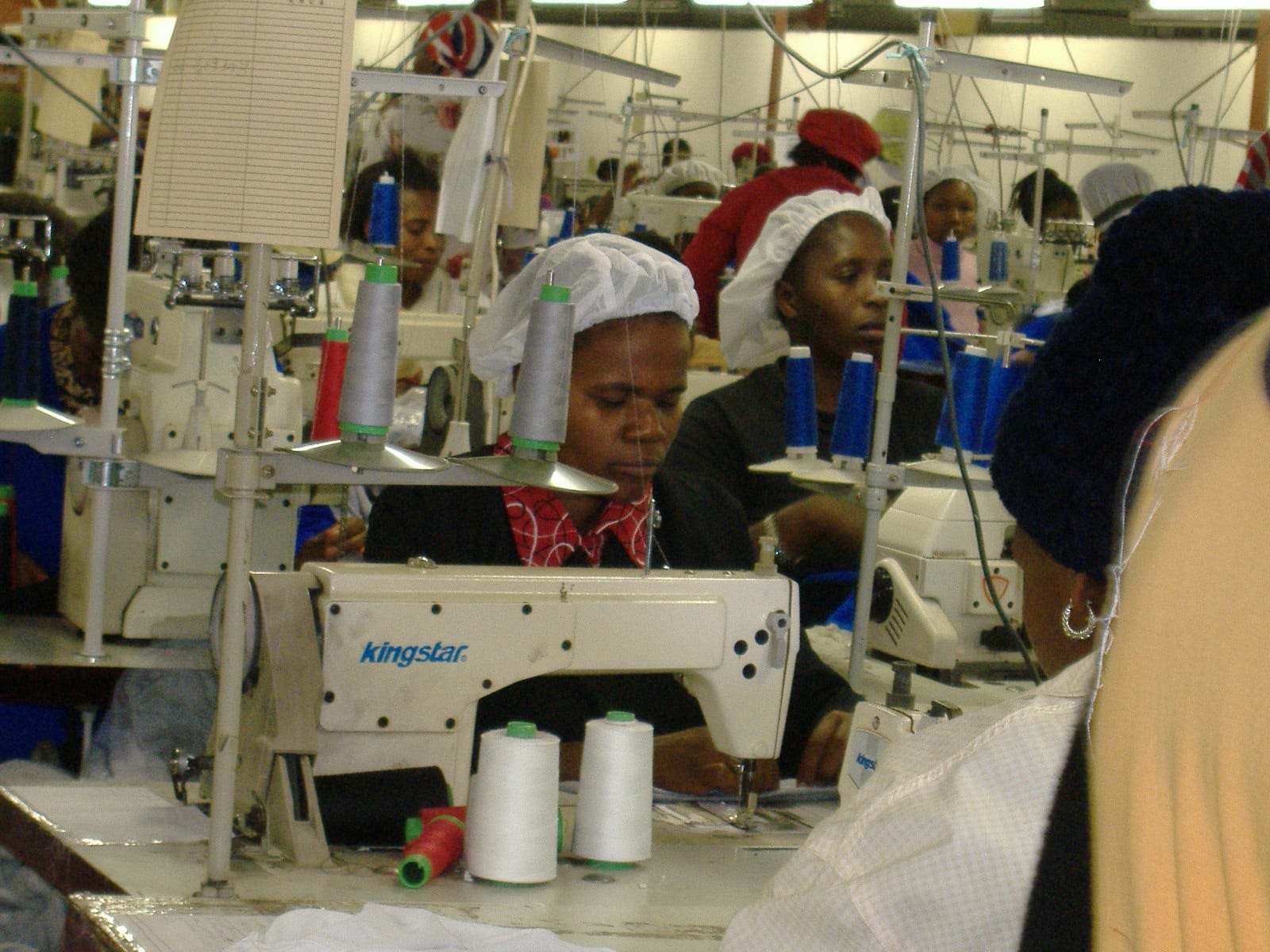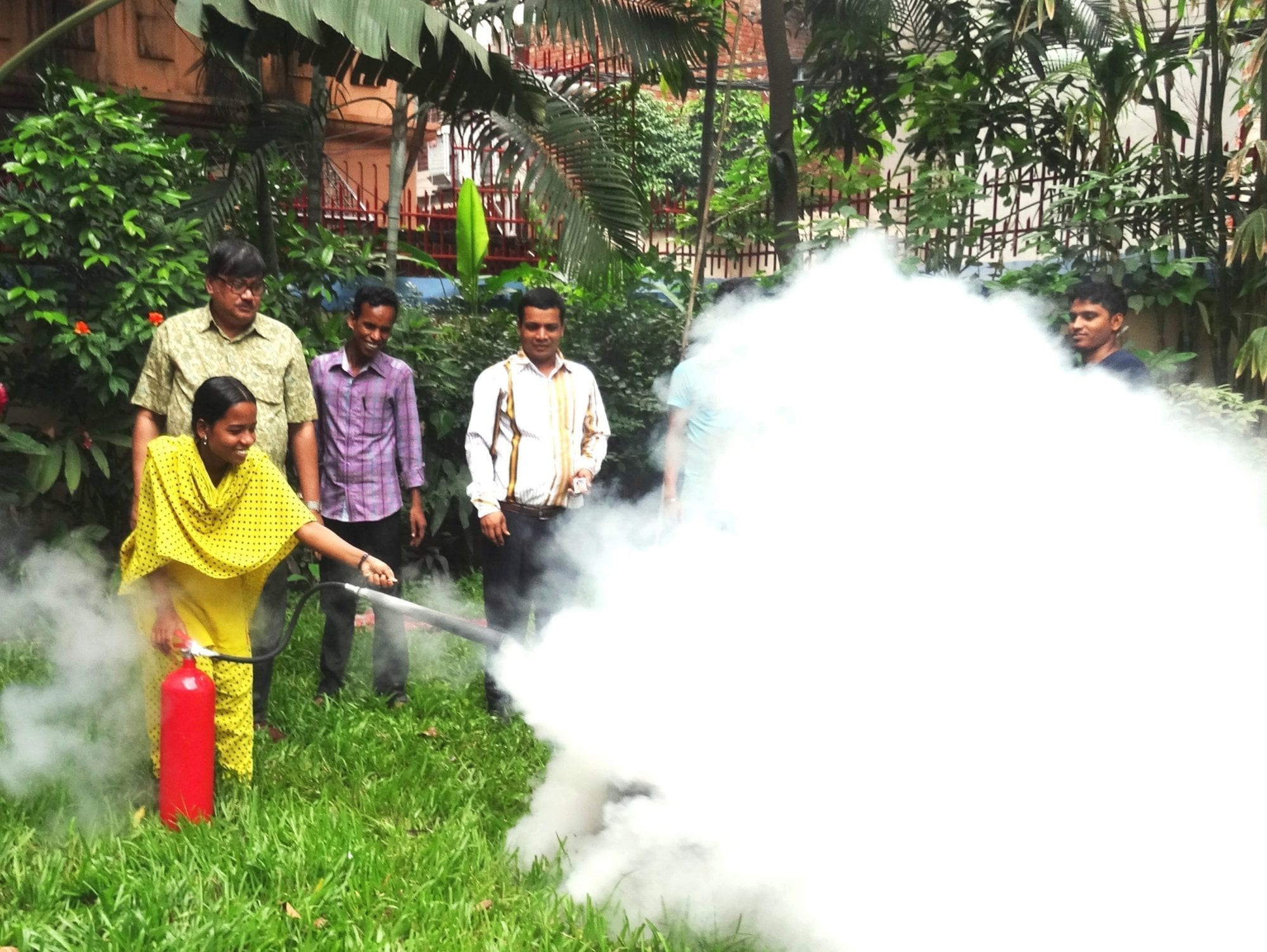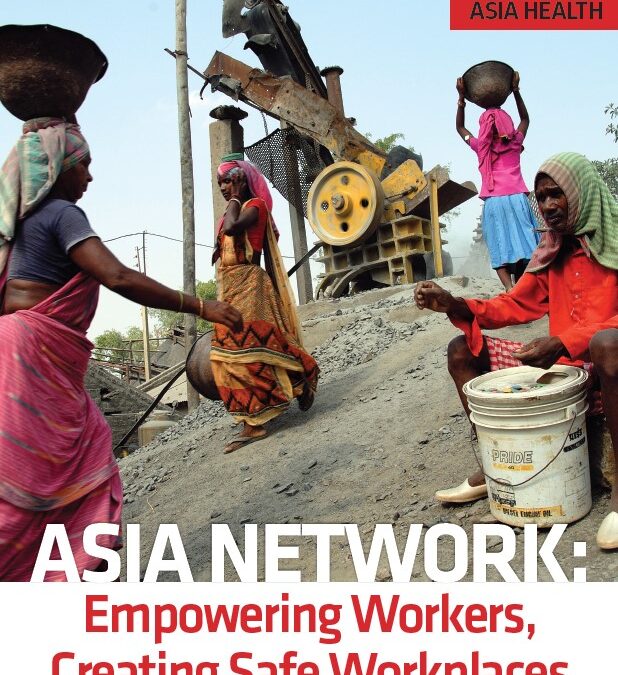
Sep 2, 2014
A panel of federal judges in Mexico dropped all criminal charges against Napoleón Gómez Urrutia, president and general secretary of the National Mine and Metal Workers Union (Los Mineros), freeing him to return to Mexico from Canada where he has lived in exile.
Gómez Urrutia, who was removed as president of the 250,000-member union by Mexican authorities and replaced with a company-backed rival, was repeatedly threatened and forced to leave Mexico in 2006. He also was charged with embezzling $55 million in union funds, an accusation struck down multiple times by the country’s courts. Following the August 28 decision, Gómez Urrutia said through Los Mineros that he plans to return to Mexico by the end of September.
Los Mineros said in a statement that “the next step will be to meet with the highest levels of government” so that Gómez Urrutia and Los Mineros can “contribute, in a framework of mutual respect, to the development of the industry and the defense of the rights of the workers and the well-being of their families.”
Days before he was removed as Los Mineros leader, an explosion at Grupo Mexico’s Pasta de Conchos mine trapped 65 mineworkers. Gómez Urrutia said the company and Mexican government only made minimal efforts to rescue the trapped men. The search for survivors was ended and the mine closed after five days, leaving the men entombed and their families waiting outside.
Prior to the explosion, Los Mineros had repeatedly cited dangerous working conditions and the smell of gas at Pasta de Conchos. After the company abandoned the men and sealed the mine, Gómez Urrutia publicly accused the mining company and the Ministry of Labor of “industrial homicide.” In response, the government filed criminal charges against Gómez Urrutia and other union leaders, froze the union’s bank accounts, assisted employers to set up company unions in Los Mineros-represented workplaces, declared the union’s strikes illegal and sent in troops to suppress them.
In 2011, Gómez Urrutia received the AFL-CIO George Meany-Lane Kirkland Human Rights Award, with AFL-CIO President Richard Trumka calling Gómez Urrutia a “truly courageous man who has shown us how difficult and how important it is to be an independent leader of a democratic union.” He also won the 2014 Arthur Svensson Prize granted to individuals or organizations working to promote trade union rights and/or strengthen trade union organizing around the world.
The AFL-CIO, the United Steelworkers and IndustriAll were among union organizations worldwide backing Gómez Urrutia and providing an international platform to champion his innocence.
Gómez Urrutia described the struggle by Mexico’s mineworkers for safety and health protections, decent wages and improved working conditions in his 2013 book, Collapse of Dignity, The Story of A Mining Tragedy and the Fight Against Greed and Corruption in Mexico. Collapse of Dignity details the February 2006 mine disaster and the subsequent attacks on him and Los Mineros. Most of the victims were temporary contractors with no training and insufficient oxygen supplies.

Aug 15, 2014
U.S. trade benefits for Africa—known as the African Growth and Opportunity Act (AGOA)—provide key economic support for countries such as Swaziland, according to Vincent Ncongwane, secretary general of the Trade Union Confederation of Swaziland (TUCOSWA).
Yet some in the Swazi government are falsely accusing Ncongwane and human rights lawyer Sipho Gumedze of taking a stand against AGOA benefits for Swaziland when they were in Washington, D.C., last week as part of a delegation of 40 African trade union leaders. In June, the U.S. government took the rare step of suspending AGOA trade benefits for Swaziland, citing the Swazi government’s systematic violations of fundamental worker rights.
“We maintain our position that we want the country to regain eligibility but it must meet the benchmarks,” Ncongwane said today in a press statement. “As we stated in the U.S. and heard clearly stated to us there, (the United States) does not wish to keep Swaziland outside the AGOA program, but eligibility remains for the (Swazi) government to take the necessary steps. It has been emphasized over and over again that all (the Swazi) government has to do is to meet the requirements of the benchmarks.”
While in Washington, Ncongwane and Gumedze, both internationally respected labor and human rights advocates, the Swazi Prime Minister Sibusiso Dlamini reportedly told lawmakers “you must strangle them” upon their return. The U.S. State Department condemned the threat, saying in a statement:
“The United States is deeply concerned by the threatening remarks made by Swaziland Prime Minister Sibusiso Barnabas Dlamini toward Swazi labor and civil society leaders who participated in the U.S.-Africa Leaders Summit in Washington this week. Such remarks have a chilling effect on labor and civil rights in the Kingdom of Swaziland.”
“The comments made today by Prime Minister Dlamini are a clear threat to the human rights community,” said Santiago Canton, Director of RFK Partners for Human Rights. “This type of language is another indication that Swaziland’s authorities do not, in any way, respect the basic human rights of its people.”
Following the statements from the United States, and international outrage within the global labor and human rights communities, Dlamini later reportedly retracted his statement.
When the United States suspended AGOA benefits in June, U.S. Trade Representative Michael Froman, said, “We have made our concerns very clear to Swaziland over the last several years and we engaged extensively on concrete steps that Swaziland could take to address the concerns. We hope to continue our engagement with the Government of the Kingdom of Swaziland on steps it can take so that worker and civil society groups can freely associate and assemble and AGOA eligibility can be restored.”
The 2014 U.S. State Department human rights report cites serious human rights violations in Swaziland, including arbitrary or unlawful killings by the government or its agents; severely restricted freedom of assembly, including violence against protestors; jailing of trade union leaders; the deregistration of TUCOSWA and the banning of strikes.
A recent TUCOSWA survey of more than 400 textile workers in Manzini, Swaziland, found that workers in the textile sector are subject to harsh and sometimes abusive conditions, many of the country’s labor laws are routinely violated by employers, and union activists are targeted by employers for punishment.
In July, ITUC General Secretary Sharon Burrow said although Swaziland was aware of the potential withdrawal of U.S. trade benefits, “the government made no genuine effort to fulfill the eligibility criteria by May 15, 2014, the deadline set by the U.S. Trade Representative. The inaction is evidence of the government’s complete disregard for the rights and livelihoods of workers.”

Jul 30, 2014
A recent survey by the Trade Union Congress of Swaziland (TUCOSWA) of more than 400 textile workers in Manzini, Swaziland, reveals that workers in the textile sector are subject to harsh and sometimes abusive conditions, many of the country’s labor laws are routinely violated by employers, and union activists are targeted by employers for punishment. (Download a PDF of this article.)
Surveys were collected by a team of five TUCOSWA union organizers from June 23–July 2, 2014. Workers from 18 of 28 textile companies in Manzini were represented in the survey and included sewing machine operators, pressers, quality controllers, packers, cleaners, trimmers, cutters and storeroom workers. The vast majority of respondents—94 percent—were women. And nearly a third of workers surveyed had post-secondary school education.
Notably, 91 percent of workers surveyed reported being punished by management for making errors, not meeting quotas or missing shifts. “I was a victim of physical abuse,” said one survey respondent. She is not alone. More than 70 percent of survey respondents reported witnessing verbal and physical abuse in their workplace by supervisors.
Some workers reported that supervisors slap or hit workers with impunity. In one example, a worker knocked to the ground by a line manager was suspended during an investigation of the incident while the line manager continued in her job.
Women reported instances of sexual harassment, as well. Several workers said they or other contract (temporary) workers were offered a permanent job in exchange for sex.
Nearly all workers—90 percent—reported having production quotas. Of these, more than 30 percent said they can never, or almost never, meet their quota, while more than 80 percent reported difficulty meeting their quota. According to the survey, punishments for not meeting quotas include suspension without pay, mandatory unpaid work through lunch breaks and verbal harassment.
Survey results also show that employer punishment of workers who are ill, injured or pregnant is common. More than 60 percent of workers said they knew someone who was fired for being sick or pregnant. Some respondents said any worker taking five sick days are automatically punished with three months forced unpaid leave.
The Swaziland Employment Act of 1980 guarantees maternity leave, prohibits termination for pregnancy and mandates 14 days paid sick leave per year under penalty to the employer of a fine or up to one year imprisonment.
Even though more than ninety percent of survey respondents believe a union would help them improve workplace conditions, survey responses show that most employers in the textile sector are hostile to unions. Eighty percent of respondents said their employer does not accept workers’ right to form a union while almost the same number reported knowing of union organizers, activists or leaders who were punished, fired or otherwise intimidated.
“Union members are victimized so I am scared to join,” said one worker.
Workers report that more than half of the clothing they produce is destined for U.S. and European stores.
In June 2014, Swaziland lost eligibility for benefits under the Africa Growth and Opportunity Act (AGOA) because the Swazi government had not demonstrated progress on the protection of internationally recognized worker rights, in particular, protecting freedom of association and the right to organize. The U.S. government, in announcing the rescinding of AGOA eligibility, also pointed out Swaziland’s “lack of legal recognition for labor and employer federations.”
TUCOSWA was formed in in January 2012 and registered by the Swazi government. The union federation was deregistered in April 2013, putting the government in violation of Convention 87 of the International Labor Organization Convention 87 which the government has ratified. Since deregistration intimidation of TUCOSWA leaders by government security forces has been widely reported, including arbitrary arrests, threats and assaults while in police custody.
.jpg) |
Safety Concerns @ Work:
Safety concerns: dust (causing respiratory problems), hot pipes, steam (causing burns), needle sticks, falling equipment and/or production materials.
Awareness:
Percent of workers who have seen other workers injured at work. |
.jpg) |
Aware of Union Intimidation:
Aware of union organizers, leaders, activists being punished, fired or otherwise intimidated. |
.jpg) |
Allowed Breaks:
No breaks during the day. Restroom breaks tightly controlled.Abused:
Verbal and physical abuse by supervisors.Job Loss due to Sickness or Pregnancy:
Workers who know of someone being fired for getting sick or pregnant. |

Jul 11, 2014
Twenty-four garment worker union leaders and organizers in Bangladesh have completed a first-of-its-kind, in-depth training course on fire and building safety, conducted by the Solidarity Center and Selim Newaz Bhuiya, former deputy director of Bangladesh Fire Service and Civil Defense.
The 10-session course aims to equip union leaders with essential knowledge and skills on workplace safety. These workers will now, in turn, educate their co-workers and strengthen their unions’ ability to raise and rectify unsafe factory working conditions.
The training was supported under a grant from the U.S. Department of Labor.
Sanjida, a worker and newly elected woman union leader from Masco Industries Ltd. in Gazipur, said, “I am now a graduate of the fire and building safety course, which makes me very happy. By participating in this training program, I now know how to protect workers from fire and how to identify risks. I learned new skills that will help me to teach other workers and be a stronger union leader.”
In a ceremony concluding the training, 18 factory-level union leaders and six organizers received certificates in recognition of their hard work and new knowledge on workplace safety. These leaders are the first of 14 groups who will eventually complete the course and will go on to help their unions build effective occupational safety and health committees to raise workers’ safety concerns with their employers.
Speaking at the event, attended by U.S. Ambassador Dan Mozena and Bangladesh Labor Secretary Mikail Shiper, Solidarity Center Bangladesh Country Program Director Alonzo Suson said, “Workers around the world have found that, by forming unions and speaking with a collective voice, they are better able to ensure safer working conditions. These new union leaders will be able to take what they’ve learned back to their co-workers to make their factories better, healthier and safer places to work.”

Jun 4, 2014
Millions of workers in Asia often risk their lives in unsafe and unhealthy workplaces. Through its network of more than 200 regional and national organizations in 14 Asian countries, including sector, national and global unions, ANROEV achieved concrete, worker-led successes in addressing occupational safety and health issues as diverse as silicosis, chemical poisoning and asbestos exposure. (2014)
English (PDF)
Spanish (PDF)




.jpg)
.jpg)
.jpg)
.jpg)

